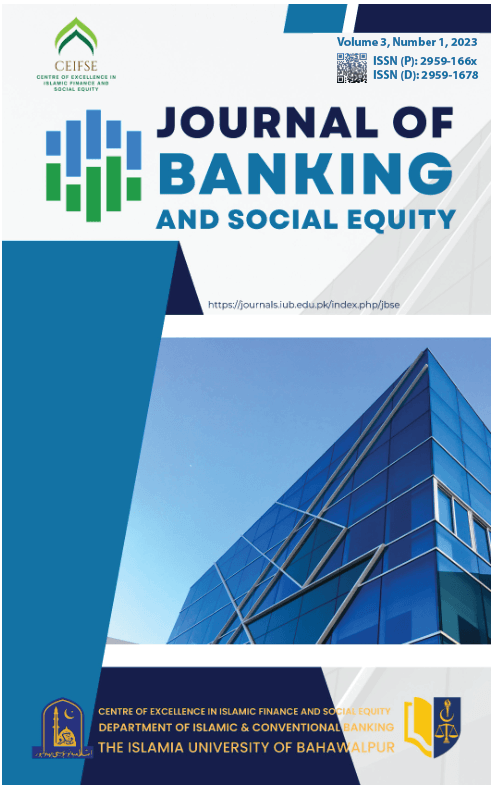The Role of Financial Inclusion and Digital Banking Accessibility in Promoting Social Equity in Pakistan: The Mediating Role of Economic Empowerment
Keywords:
Financial Inclusion, Digital Banking Accessibility, Economic Empowerment, Social EquityAbstract
The purpose of this study was to assess the role of financial accessibility and inclusion in social equity in Pakistan, and the mediating effect of economic empowerment. Further, it was aimed at understanding how access to financial services can lead to economic empowerment, and how that can lead to social equity. A quantitative research design was used with a cross-sectional research flap. For data collection, structured questionnaires were distributed among banking professionals, whose jobs required them to work with customers in some capacity in commercial bank branches in Lahore, Karachi, Islamabad, and Peshawar. Data from 253 questionnaires were valid to be reviewed in order to test hypothesized relationships between variables. Findings indicated that both financial inclusion and digital banking accessibility significantly impacted social equity. Economic empowerment fully mediated the relationship between social equity and digital banking and was partially mediated by economic empowerment for the financial inclusion- social equity relationship. Results confirmed the theoretical framework for this study and demonstrated the importance of economic empowerment as a tool for achieving social justice. Overall, it was concluded that the expansion of financial inclusion and digital banking services increased social equity in Pakistan indirectly through increasing economic power for recipients of these banking services
Downloads
Published
How to Cite
Issue
Section
License
Copyright (c) 2024 Arif Muhammad

This work is licensed under a Creative Commons Attribution-NonCommercial 4.0 International License.






